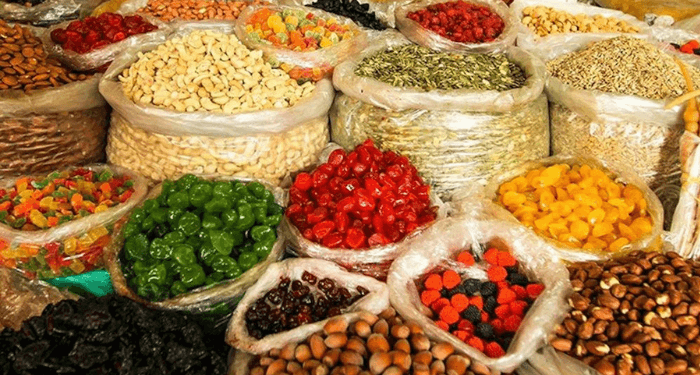IFAD Pledges to Transform Lives of 70 million Small-scale Food Producers, as Part of the World Bank’s AgriConnect Initiative
The International Fund for Agricultural Development (IFAD) pledged to reach at least 70 million small-scale farmers and significantly transform their lives by increasing their incomes, productive capacity and market access by 2030 as part of the World Bank’s AgriConnect initiative today. The pledge was made by Alvaro Lario, IFAD President, at the launch of this initiative at the Bank’s Annual Meetings in Washington.
Mission AgriConnect is a new World Bank Group initiative designed to create jobs in agribusiness, transform the livelihoods of millions of smallholder farmers globally and strengthen global food security. IFAD’s commitment to reach at least 70 million rural producers contributes to the overall goal of reaching 250 million small-scale farmers by 2030, with the World Bank, the African Development Bank and the Inter America Development Bank.
“IFAD investments have led to higher incomes, bigger yields, and better market access for small-scale food producers. Delivering that triple impact, we will target at least 70 million people in rural and fragile areas,” said Lario at the event. “IFAD, the World Bank, other Multilateral Development Banks, governments and private sector partners share a common ambition: to match scale with meaningful impact by better connecting small-scale food producers to markets and turning rural areas into engines of growth, jobs, and food security.”
IFAD brings almost 50 years of knowledge and experience of exclusively investing in rural communities in the most remote and fragile rural areas where poverty and hunger are deepest. These are also the areas in which the return on investments in economic growth, food security and social stability is high.
IFAD’s own experience shows that investing in deep rural areas can be transformational, with many IFAD projects leading to an income gain of 50 per cent for farmers, according to the latest IFAD Impact assessment. As per projects assessed, small-scale food producers IFAD invested in from 2022-2024 saw their average income grow by 34 per cent; their production grow by 35 per cent; and their access to markets increase by 34 per cent.
For nearly 50 years, IFAD has engaged with the local private sector with focus on value chains development and rural financial institutions. Between 2019-2023, 70 per cent of IFAD projects engaged with local businesses. By bundling expertise from the private sector, IFAD investments help farmers boost production and resilience, access know-how, technology and markets. Recently IFAD has boosted its capacity to lend directly to the private sector and de-risk investments for catalytic small- and medium size enterprises (SMEs) and rural financial institutions to scale impact and create economic opportunities and jobs for rural communities.
IFAD also invests in green jobs, digital innovation, rural services and agro enterprises to make agriculture and food systems more attractive to the younger generations. IFAD works closely with the private sector to provide mentorship and vocational training, invest in youth-led agri-SMEs and ensure they can access finance and technology.
Acting as an integrated investment platform for rural people, IFAD connects, assembles, and catalyzes finance by bringing together governments, development banks, and private investors to channel resources where they are needed most.
Investing in small-scale farmers and rural populations is a powerful engine for economic growth, job creation and global food security and stability. Evidence show that growth in agriculture is 2-3 times more effective in reducing poverty than growth in other sectors, with the largest impact among the poorest people.
Rural communities are home to 80 per cent of the world’s poorest people, and face challenges from climate shocks to lack of access to inputs, technologies, financial services. Yet, they also hold immense untapped potential. Meeting the growing demand for food projected to surge by close to 60 per cent by 2030 could generate an estimated US$10 trillion in annual economic opportunities by 2050. Africa’s agribusiness sector could reach US$1 trillion by 2030.
In the coming decade, 1.2 billion young people will enter the job market in developing countries. Agri-food systems already provide employment for 40 per cent of the global workforce. With targeted investment, food systems can generate millions of additional jobs across value chains, from input supply and logistics to processing and retail.







